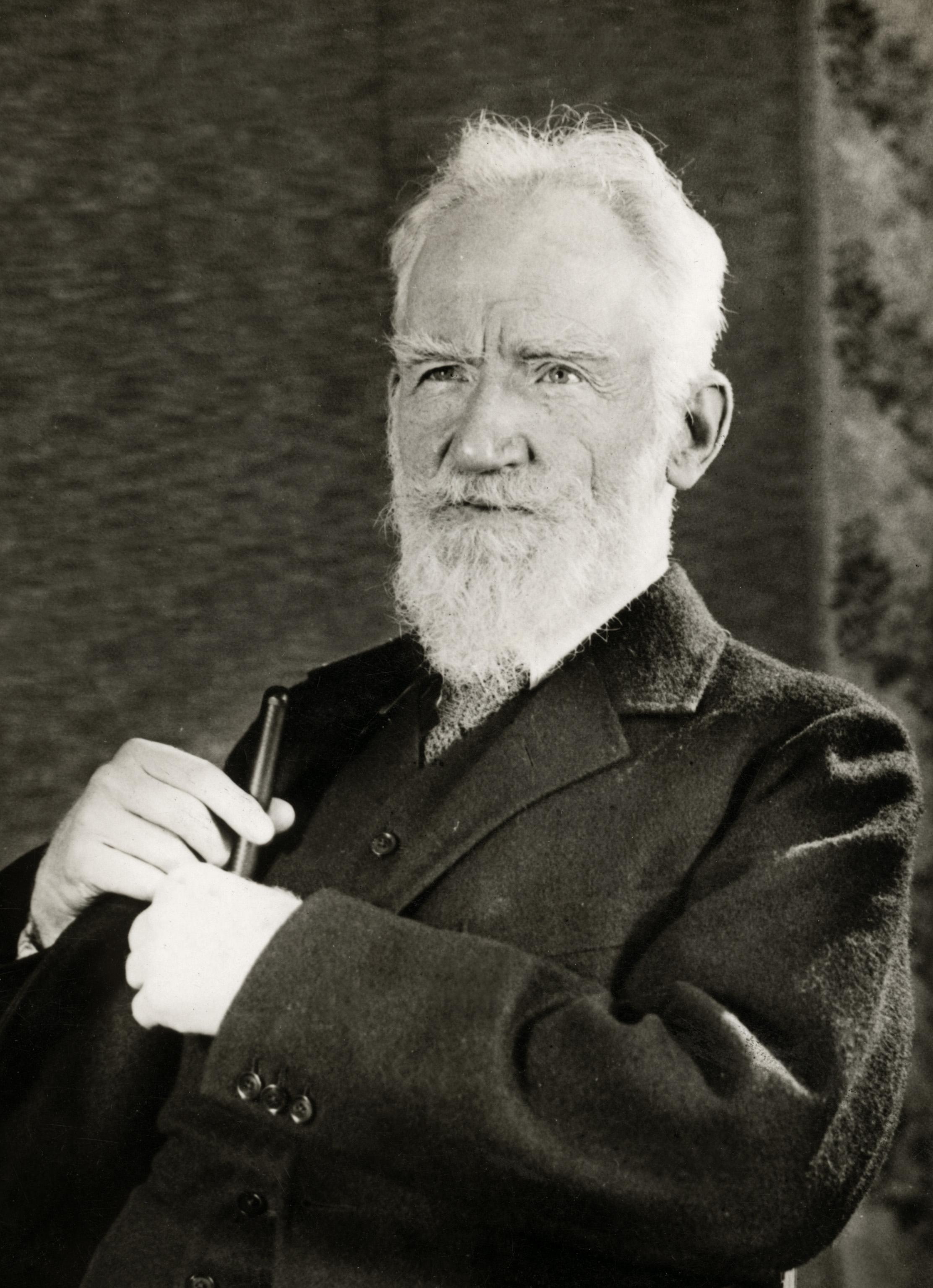George Bernard Shaw Berühmte Zitate
Zitate über Menschen von George Bernard Shaw
The Devil's Disciple, Act II (1901)
Original engl.: "The worst sin towards our fellow creatures is not to hate them, but to be indifferent to them: that's the essence of inhumanity."
„Je mehr ein Mensch sich schämt, desto anständiger ist er.“
Man and Superman (dt.: Mensch und Übermensch), 1903, 1. Akt
Original engl.: "The more things a man is ashamed of, the more respectable he is."
George Bernard Shaw Zitate und Sprüche
„Ich zitiere mich oft selber. Ich finde, es bringt Attraktivität in das Gespräch.“
The Wordsworth Dictionary of Quotations, Robertson, Connie, Wordsworth, Herfordshire 1996
Original engl.: "I often quote myself. It adds spice to my conversations."
Der Sozialismus und die Natur des Menschen, Suhrkamp, Frankfurt a. Main 1973. S. 140 ISBN 3-518-36621-1 Auswahl und Übersetzung von Ursula Michels-Wenz, zitiert in: Die Neue Gesellschaft, Heft 27, hrsg. für die Friedrich-Ebert-Stiftung, Bonn 1980. S. 757
Original engl.: "[...] Equality is the best touchstone for distinguishing your real Socialist from your virtuously indignant pitier of the poor." - The Road to Equality: Ten unpublished Lectures and Essays, 1884-1918, edited by Louis Crompton, Beacon Press, 1971. S. 194
„Wenn ich scherzen will, sage ich die Wahrheit. Das ist immer noch der größte Spaß auf Erden.“
John Bull's Other Island, Akt 2, 1907
Original engl.: "My way of joking is to tell the truth. It's the funniest joke in the World."


„England und Amerika sind zwei Länder, die durch die gemeinsame Sprache getrennt sind.“
Reader’s Digest, November 1942; für Shaw nicht belegbar, jedoch hatte Oscar Wilde schon vorher in "Das Gespenst von Canterville" einen ähnlichen Gedanken. Popular misquotes - 'the things they never said'. http://www.phrases.org.uk/quotes/misquotes/
Original engl.: "England and America are two countries divided by a common language." auch mit "United States" und "Great Britain"
Zugeschrieben

George Bernard Shaw: Zitate auf Englisch
“Reason enslaves all whose minds are not strong enough to master her.”
#125
1900s, Maxims for Revolutionists (1903)
“Journalists are too poorly paid in this country to know anything that is fit for publication.”
Preface
1900s, Getting Married (1908)
Preface to English Prisons Under Local Government http://books.google.com/books?id=81YwAAAAYAAJ by Sydney and Beatrice Webb (1922)
1940s and later
“The quality of a play is the quality of its ideas.”
"The Play of Ideas", New Statesman (6 May 1950)
1940s and later
#23
1900s, Maxims for Revolutionists (1903)
Preface: "The Personal Sentimental Basis of Monogamy" http://www.enotalone.com/article/13714.html
1900s, Getting Married (1908)
“Riches and Art are spurious receipts for the production of Happiness and Beauty.”
#104
1900s, Maxims for Revolutionists (1903)
As quoted in Socialism and Superior Brains: The Political Thought of Bernard Shaw by Gareth Griffith (1993). Originally from Bernard Shaw, The News Chronicle, “The Blackshirt Challenge,” (Jan. 1934)
1930s
As quoted in Days with Bernard Shaw (1949) by Stephen Winsten
1940s and later
“Economy is the art of making the most of life. The love of economy is the root of all virtue.”
Quelle: 1900s, Man and Superman (1903), p. 235
#101
1900s, Maxims for Revolutionists (1903)
Interview (April 1935) in The Genuine Islam, Vol. 1, No. 8 (1936), as quoted at "A Shavian and a Theologian" at World Islamic Mission http://www.wimnet.org/articles/shaviantheo.htm
Disputed
“In my view, Anglo-Irish history is for Englishmen to remember, for Irishmen to forget.”
Ireland in the New Century (1904) by Horace Plunkett
Often quoted as: Irish history is something no Englishman should forget and no Irishman should remember.
Misattributed
“We have no reason to suppose that we are the Creator's last word.”
Everybody's Political What's What http://books.google.com/books?id=JSwBAAAAMAAJ&q=%22we+have+no+reason+to+suppose+that+we+are+the+Creator's+last+word%22&pg=PA234#v=onepage (1944)
1940s and later
Speech at New York (11 April 1933)
1930s
“What really flatters a man is that you think him worth flattering.”
1900s, John Bull's Other Island (1907)
“The Nazi movement is in many respects one which has my warmest sympathy.”
As Quoted in London Morning Post, (Dec. 3, 1925)
1920s
“God help England if she had no Scots to think for her!”
The Apple Cart (1928), Act II
1920s
“Self-denial is not a virtue: it is only the effect of prudence on rascality.”
#87
1900s, Maxims for Revolutionists (1903)
Ellie Dunn, Act II
1910s, Heartbreak House (1919)
The He-Ancient, in Pt. V
1920s, Back to Methuselah (1921)
